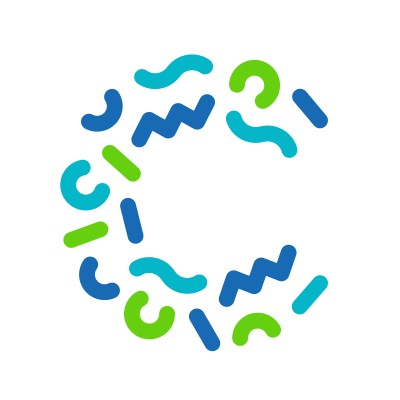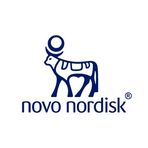Cradle's Bold Leap: Revolutionizing Protein Engineering with AI
November 27, 2024, 3:34 am

Location: United States, New Jersey, New Brunswick
Employees: 10001+
Founded date: 1886

Location: Netherlands, North Holland, Amsterdam
Employees: 11-50
Founded date: 2021
Total raised: $102.6M
In the world of biotechnology, the race to innovate is relentless. At the forefront of this race is Cradle, a trailblazing company based in Amsterdam. Recently, Cradle secured a whopping $73 million in Series B funding, pushing its total funding to over $100 million. This investment, led by IVP and supported by Index Ventures and Kindred Capital, is a game-changer. It positions Cradle to redefine how proteins are engineered, promising to accelerate breakthroughs in pharmaceuticals, agriculture, and beyond.
Proteins are the unsung heroes of modern science. They are the building blocks of life, essential for everything from medicines to sustainable materials. Yet, traditional methods of protein engineering are akin to navigating a labyrinth. Slow, costly, and fraught with uncertainty, these methods often lead to dead ends after years of trial and error. Cradle aims to cut through this complexity with its innovative AI-driven platform.
Imagine a world where scientists can design proteins with the ease of typing a text message. Cradle’s generative AI platform makes this a reality. By leveraging vast libraries of known protein sequences, the platform can suggest new protein designs tailored to specific needs. This capability drastically reduces the number of experimental rounds required in the lab, slashing development time from years to mere months. It’s like having a GPS in a world where everyone else is still using paper maps.
The implications of this technology are profound. In pharmaceuticals, for instance, the costs associated with drug discovery can reach hundreds of millions of dollars. By streamlining the protein engineering process, Cradle not only saves time but also significantly cuts costs. This efficiency translates into real-world benefits, making essential medicines more accessible and affordable.
Cradle’s technology is not just a theoretical concept; it has already demonstrated its impact across various industries. Major players like Novo Nordisk and Johnson & Johnson are among its clients, utilizing Cradle’s platform for research and development. The versatility of Cradle’s technology allows it to cater to diverse applications, from therapeutic proteins to eco-friendly pesticides. It’s a Swiss Army knife for protein engineering.
The recent funding will enable Cradle to expand its laboratory capabilities. More lab space means more data, which in turn enhances the AI models that drive the platform. This is crucial for tackling more complex protein engineering challenges. As the company grows, so does its ambition. Cradle aims to empower a million scientists worldwide, putting the tools of protein design directly in their hands.
Data security and intellectual property protection are also top priorities for Cradle. In an industry where innovation is key, safeguarding proprietary information is essential. Cradle ensures that its clients retain full control over their engineered proteins, fostering a sense of trust and collaboration.
The timing of this funding is particularly noteworthy. The global AI drug discovery market is projected to explode, with estimates suggesting it could grow from $2.07 billion in 2024 to around $11.9 billion by 2033. Cradle is poised to ride this wave, positioning itself as a leader in the AI-driven biotech landscape.
As Cradle expands its engineering team, it is not just adding personnel; it is building a powerhouse of innovation. The company recently appointed Sam Partovi, a veteran in the life sciences sector, as Chief Commercial Officer. His experience will be invaluable as Cradle seeks to deepen its impact in the biotech industry.
The journey of Cradle is a testament to the power of innovation. Founded on the belief that generative AI can solve pressing global challenges, the company has quickly proven its worth. In just two years, it has transformed the landscape of protein engineering, demonstrating that the future of biotechnology is not just bright; it is dazzling.
In conclusion, Cradle is not merely a company; it is a catalyst for change. With its recent funding, it stands on the brink of a revolution in protein engineering. The fusion of AI and biotechnology is set to unlock new possibilities, paving the way for breakthroughs that could reshape our world. As Cradle continues to innovate, the potential for addressing global health and environmental challenges becomes increasingly tangible. The future is here, and it is powered by Cradle.
Proteins are the unsung heroes of modern science. They are the building blocks of life, essential for everything from medicines to sustainable materials. Yet, traditional methods of protein engineering are akin to navigating a labyrinth. Slow, costly, and fraught with uncertainty, these methods often lead to dead ends after years of trial and error. Cradle aims to cut through this complexity with its innovative AI-driven platform.
Imagine a world where scientists can design proteins with the ease of typing a text message. Cradle’s generative AI platform makes this a reality. By leveraging vast libraries of known protein sequences, the platform can suggest new protein designs tailored to specific needs. This capability drastically reduces the number of experimental rounds required in the lab, slashing development time from years to mere months. It’s like having a GPS in a world where everyone else is still using paper maps.
The implications of this technology are profound. In pharmaceuticals, for instance, the costs associated with drug discovery can reach hundreds of millions of dollars. By streamlining the protein engineering process, Cradle not only saves time but also significantly cuts costs. This efficiency translates into real-world benefits, making essential medicines more accessible and affordable.
Cradle’s technology is not just a theoretical concept; it has already demonstrated its impact across various industries. Major players like Novo Nordisk and Johnson & Johnson are among its clients, utilizing Cradle’s platform for research and development. The versatility of Cradle’s technology allows it to cater to diverse applications, from therapeutic proteins to eco-friendly pesticides. It’s a Swiss Army knife for protein engineering.
The recent funding will enable Cradle to expand its laboratory capabilities. More lab space means more data, which in turn enhances the AI models that drive the platform. This is crucial for tackling more complex protein engineering challenges. As the company grows, so does its ambition. Cradle aims to empower a million scientists worldwide, putting the tools of protein design directly in their hands.
Data security and intellectual property protection are also top priorities for Cradle. In an industry where innovation is key, safeguarding proprietary information is essential. Cradle ensures that its clients retain full control over their engineered proteins, fostering a sense of trust and collaboration.
The timing of this funding is particularly noteworthy. The global AI drug discovery market is projected to explode, with estimates suggesting it could grow from $2.07 billion in 2024 to around $11.9 billion by 2033. Cradle is poised to ride this wave, positioning itself as a leader in the AI-driven biotech landscape.
As Cradle expands its engineering team, it is not just adding personnel; it is building a powerhouse of innovation. The company recently appointed Sam Partovi, a veteran in the life sciences sector, as Chief Commercial Officer. His experience will be invaluable as Cradle seeks to deepen its impact in the biotech industry.
The journey of Cradle is a testament to the power of innovation. Founded on the belief that generative AI can solve pressing global challenges, the company has quickly proven its worth. In just two years, it has transformed the landscape of protein engineering, demonstrating that the future of biotechnology is not just bright; it is dazzling.
In conclusion, Cradle is not merely a company; it is a catalyst for change. With its recent funding, it stands on the brink of a revolution in protein engineering. The fusion of AI and biotechnology is set to unlock new possibilities, paving the way for breakthroughs that could reshape our world. As Cradle continues to innovate, the potential for addressing global health and environmental challenges becomes increasingly tangible. The future is here, and it is powered by Cradle.

